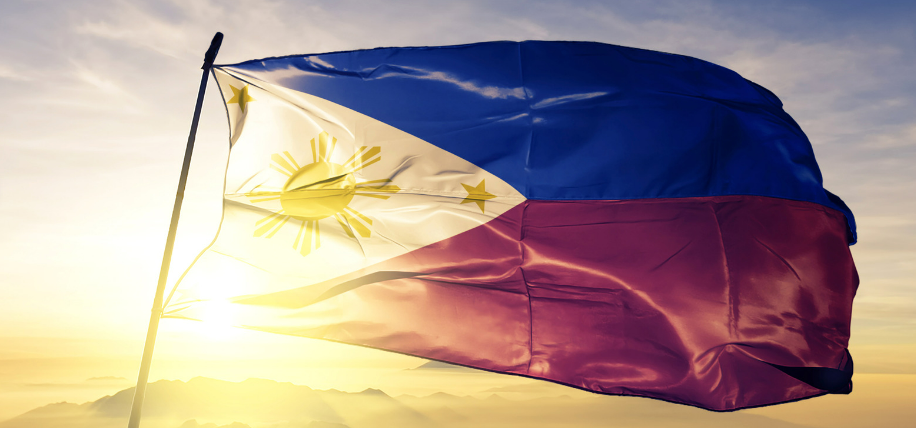As an executive or business owner in Australia, you constantly seek ways to reduce operating costs, enhance profitability and lower the interest rate being paid on your business debt.
Business debt is a critical element of any organisation. It provides a mechanism to fund working capital, grow your business, and, in many cases, purchase your own commercial property to operate from.
With interest rates increasing in Australia over the last couple of years and inflation still at a level the RBA is uncomfortable with, businesses face high financing costs especialy if they have high levels of business debt.
Outsourcing can help you reduce those financing costs. In this article, we will explain why and how.
The interest rate a business pays for debt is quite a bit different from that of consumer debt. Consumer debts tend to have a set rate based on the amount borrowed and the loan valuation ratio (LVR). Business debts, however, are priced for risk, which means lenders look at a lot more than just the amount and LVR.
Outsourcing can improve your rating in several key risk measures, putting you in a solid position to demand a lower interest rate from your lender while increasing your borrowing capacity so you can leverage more opportunities to grow your business.
The Challenge Facing Australian Businesses
High inflation and rising interest rates go hand in hand. Ultimately, this leads to higher costs for businesses with business debt, squeezing profit margins. Coupled with skill shortages and higher wages, it is tough to be a business owner and to run a business profitably.
Many business operators have been planning for these challenges and consequently gaining a competitive advantage as conditions got tougher. The reality is these challenges will be here for a while, and even if they improve, the cyclical nature of the economy means they will be sure to surface again anyway.
If you still need to take steps to leverage outsourcing’s clear benefits, now is the time to start. So, let’s look specifically at how outsourcing can help reduce the interest rate on your business debt.
Factors Influencing Business Loan Interest Rates
If you have heard the term “Reward for Risk” then this is exactly how lenders look at it when lending money to a business.
They need a satisfactory return for the risk they are taking in lending you money. If they consider you a higher risk, your interest rate will be higher. The reverse is also true; if you represent a low level of risk, your interest rate will be lower.
Several factors influence lenders’ perceptions of your level of risk. Lenders consider all these factors to determine your credit quality as a business customer. They sometimes refer to their assessment of your business as a “Risk Grade” or “Credit Grade.”
The interest rate margin applied to your debt is often directly aligned with this assessment of your business. As such, the stronger you can make your business in the eyes of lenders, the better the interest rate they will offer you.
Let’s take a look at some of these factors more closely.
Cash Flow & Profitability
Cash flow from profitable business operations is how you will repay your business debt. It is known as the first way out and is what lenders consider when assessing your eligibility for a loan.
Lenders prioritise cash flow as the primary means of repaying loans as they want to rely on something other than selling assets held as security. Strong cash flow and consistent and growing profitability levels reduce risk in a lender’s eyes, leading to better loan terms.
You can quickly see that outsourcing roles to lower-cost offshore locations can immediately improve your business’s cash flow and profitability.
Whilst it may take time for these savings to flow through to your financial statements and bank accounts, you can explain the strategies undertaken to your Bank or Mortgage Broker, and they can push the case to have some of your wages costs “added back” to give them an expected or adjusted net profit figure moving forward. More on this powerful approach later!
Collateral
Collateral is the security a lender has for your business debt. They also refer to this as the second way out. In other words, if you can’t make loan repayments, this is how they will get their money back.
The quality of the assets securing the business debt impacts the level of risk and, therefore, the interest rate you will be offered. Residential and commercial properties offer the best security, leading to lower rates. Other assets like stock, debtors, and equipment are considered lower in quality, resulting in higher rates. Unsecured debts attract the highest interest rates.
Gearing or Leverage
The Loan to Valuation Ratio (LVR) measures the level of debt against the value of the assets held as security. A lower LVR indicates lower risk or a lower risk of incurring a loss, resulting in better interest rates. Lenders generally prefer LVRs of up to 80% for residential properties and 70% for commercial properties.
Management
The experience and character of the management team also influence the risk assessment and, consequently, the interest rate.
Depending on your industry, demonstrating that you have established relationships with premium outsourcing companies who have been supporting businesses to achieve success can be a big tick.
Working with the executives of these companies can help you, as a business owner or leader, learn from their experience, expand your network, and be exposed to new business opportunities or partnerships that you would not have otherwise.
How Outsourcing Can Improve Key Financial Metrics
Outsourcing will result in substantial cost savings and improved financial metrics for your business. Let’s take a look at some of the key ones here.
EBITDA Improvement
EBITDA (Earnings Before Interest, Tax, Depreciation, and Amortisation) is a crucial metric for lenders and is important in determining a borrower’s risk grade. It is calculated using your business’s profit and loss statement.
EBITDA = Net Profit Before Tax + Interest + Depreciation + Amortisation
Outsourcing can boost your EBITDA by reducing operating costs and improving your net profit, making your business more resilient to economic downturns and improving your borrowing capacity.
There is also a commonly used term called “Adjusted EBITDA.” This is when manual adjustments are made to some of the components of EBITDA to reflect a future position. Let’s say, for example, there was a one-off expense in your profit and loss statement, like a loss on the sale of an asset. The Bank will add that back as it is not going to reoccur in the future.
Similarly, you can demonstrate that you have executed an offshore staffing outsourcing plan. In that case, you can easily quantify the savings you expect to achieve, and the lender may “add back” these locked-in savings. Doing so will increase your net profit before tax and EBITDA and, as a result, improve your risk grade as a borrower for business debt.
Increased Borrowing Capacity
Improving your business’s Net Profit Before Tax and EBITDA by executing an outsourcing strategy also increases your borrowing potential. Lenders will see that you can afford a higher level of debt now that your profits are higher and cash flow is more robust. Much the same as getting a higher salary typically means you can afford to borrow more.
By being able to borrow more, you open the door to more opportunities. You could use this to buy your own commercial property to operate from rather than rent, purchase new equipment to expand your business’s capacity, or acquire a competitor and then apply your cost-saving strategies to that business, too.
Your more substantial cash flow and, consequently, more significant cash reserves could also be used to reduce business debt and improve the strength of your business balance sheet, which positively influences your risk grade and the level of interest rates you can get from a lender.
Hypothetical Case Study: ABC Transport Logistics
ABC Transport Logistics, a hypothetical Australian company for the purposes of this case study, faced challenges in financing a new truck due to tight debt servicing ratios. They needed this truck in order to tender on a new contract, which they would normally be favourites to win.
By outsourcing one Accounts Payable/Receivable role to the Philippines, they saved $46,000 annually.
This improved their Net Profit Before Tax and EBITDA. It saw their Credit Grade with their Bank improve and could consequently show that they could afford to by the extra truck and win the new contract that was on offer and they got a lower rate due to their improved risk profile.
Beyond Cost Savings: Strategic Advantages of Outsourcing
The benefits of outsourcing extend beyond immediate cost savings, better interest rates and improved borrowing capacity for business debt. Read our recent article, which explores all the benefits you can leverage beyond cheaper wages.
At the Australian Outsourcing Broker, we believe every business should explore the potential of outsourcing. The financial and operational advantages are significant, providing a competitive advantage.
Contact us to receive tailored outsourcing proposals from top outsourcing providers globally and discover how outsourcing can transform your business. By considering outsourcing, you can strategically position your business to thrive amidst rising interest rates, ensuring long-term success.






